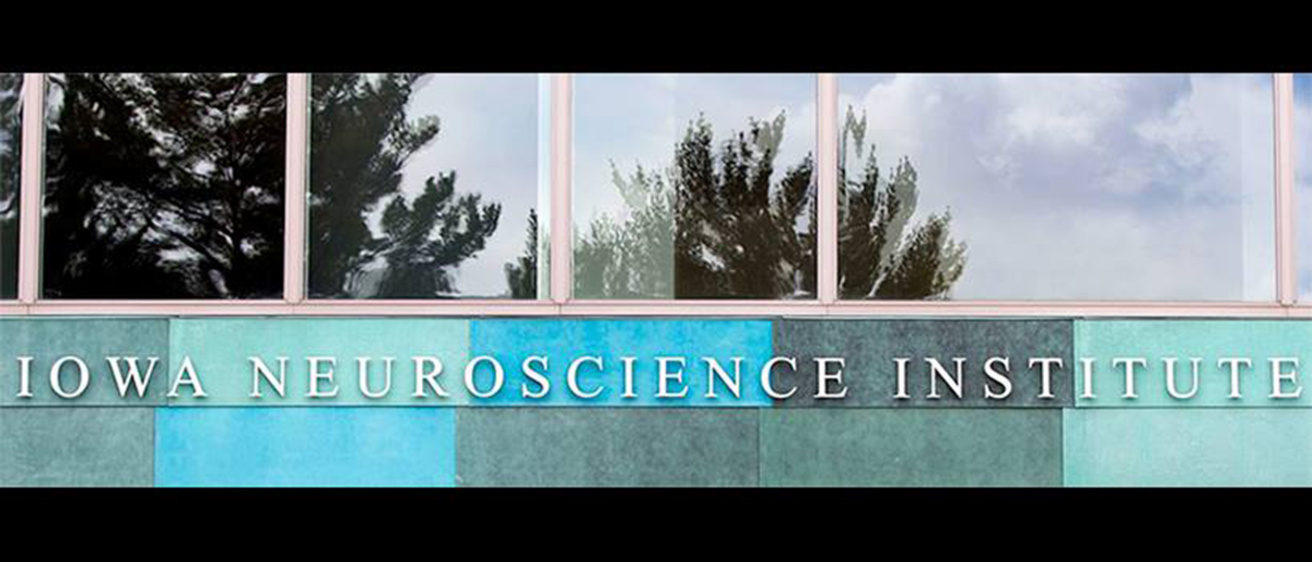The Iowa Neuroscience Institute has awarded a total of $2.4 million to four research teams to carry out Research Programs of Excellence over the next three years. Funded by the Roy J. Carver Charitable Trust, the research ranges from fundamental biology to translational studies and is focused on hearing loss, pediatric brain development, headache disorders, and female susceptibility to affective disorders, including depression and anxiety.
The grants help research teams lay the necessary groundwork for obtaining major national funding, including grants from the National Institutes of Health. The program also aims to build and foster diverse teams of talented investigators whose collaborative work will accelerate the pace of discovery. Research Programs of Excellence funded in 2017 and 2022 have generated more than $80 million in external grant funding and more than 200 scientific papers.
The following four projects were selected after a competitive application and review of 29 proposals:
Auditory, Behavior and Cognition (ABC) Research Program of Excellence
- Marlan Hansen, MD, professor of otolaryngology, head and neck surgery, Carver College of Medicine
- Inyong Choi, PhD, associate professor of communication sciences and disorders, College of Liberal Arts and Sciences
- Bob McMurray, PhD, professor of psychological and brain sciences, College of Liberal Arts and Sciences
- Cathy Sung, PhD, assistant professor of biology, College of Liberal Arts and Sciences
- Snehajyoti Chatterjee, PhD, assistant professor of neuroscience & pharmacology, Carver College of Medicine
Several factors contribute to cognitive decline among people with hearing loss. This team proposes to bring its varied expertise to bear to pinpoint the relative impact of each factor. They hypothesize that brain pathology, increased cognitive load, and social isolation from hearing loss, individually or in combination, contribute to cognitive dysfunction, which can be mitigated by targeting the underlying mechanisms to optimize auditory processing. The team includes clinician scientists (Hansen), auditory biologists (Sung), cognitive neurobiologists (Chatterjee), neuroscientists and neural engineers (Choi), and cognitive scientists (McMurray).
Pediatric Developing Brain Collaborative
- Lyndsay Harshman, MD, MS, associate professor of pediatrics- Nephrology, Dialysis and Transplantation, Carver College of Medicine
- Janice Staber, MD, associate professor of pediatrics-hematology/oncology, Carver College of Medicine
- Levi Sowers, PhD, assistant professor of pediatrics-neurology, Carver College of Medicine
- Hanna Stevens, MD, PhD, professor of psychiatry, Carver College of Medicine
- Elizabeth Newell, MD, assistant professor of pediatrics-critical care, Carver College of Medicine
- Vincent Magnotta, PhD, professor of radiology, Carver College of Medicine
- Gideon Zamba, PhD, professor of biostatistics, College of Public Health
This multidisciplinary group of researchers seeks to understanding the impact of chronic neuroinflammation and maladaptive neuroimmune responses on neurodevelopment. Chronic inflammation during childhood is increasingly recognized as a key risk factor for maladaptive neuroimmune responses that can contribute to risk for future neurodevelopmental disorders. This team will evaluate the role of shared neuroinflammatory pathways within seemingly disparate pediatric conditions – including chronic kidney disease, hemophilia A, and traumatic brain injury – in parallel with long-term neurodevelopment and risk for developmental disorders. By identifying the role of shared neuroimmune pathways in these different diseases, they can identify mechanisms for therapeutic interventions to mitigate the adverse effects of neuroinflammation on neurodevelopment.
Headache resilience: from molecules to brain networks
- Rainbo Hultman, PhD, assistant professor of molecular physiology and biophysics, Carver College of Medicine
- Levi Sowers, PhD, assistant professor of pediatrics-neurology, Carver College of Medicine
- Andy Russo, PhD, professor of molecular physiology & biophysics, Carver College of Medicine
- Aaron Boes, MD PhD, professor of pediatrics-neurology, Carver College of Medicine
- Deema Fattal, MD, clinical professor of neurology, Carver College of Medicine
- Jake Michaelson, PhD, professor of psychiatry, Carver College of Medicine
- Sanvesh Srivastava, PhD, associate professor of statistics & actuarial science, College of Liberal Arts and Sciences
This team seeks to pave the way for precision medicine for headache. They will integrate neural circuits, brain networks, and genomics on a preclinical level to define targetable mechanisms for enabling headache resilience and then translate these findings to humans. Headache disorders represent the most common neurological disorders. Symptoms of headache disorders expand far beyond just pain and often include cognitive impairment, severe mood disruptions, autonomic nervous system dysregulation, and sensory alterations of multiple modalities (visual, auditory, olfactory, vestibular, touch). Historically, the University of Iowa has been home to several breakthroughs in preclinical modeling of headache disorders.
Iowa Women's Brain Initiative
- Hanna Stevens, MD, PhD, professor of psychiatry, Carver College of Medicine
- Avrama Blackwell, VMD, PhD, professor of biomedical engineering, College of Engineering
- Jennifer Bermick, MD, associate professor of pediatrics-neonatology, Carver College of Medicine
- Sarah Ferri, PhD, assistant professor of pediatrics-developmental and behavioral pediatrics, Carver College of Medicine
- Rainbo Hultman, PhD, assistant professor of molecular physiology and biophysics, Carver College of Medicine
- Banu Gumusoglu, PhD, assistant professor of obstetrics and gynecology, Carver College of Medicine
- Isaac Petersen, PhD, associate professor of psychological and brain sciences, College of Liberal Arts and Sciences
Affective disorders, which include depression and anxiety, disproportionately impact women and girls, and risk is exacerbated during specific life stages: onset of puberty, phases of the menstrual cycle, pregnancy, and postpartum. This team will investigate brain circuits and hormone and immune mechanisms underlying women and girls’ risk for affective disorders. They hypothesize that specific brain circuits and interactions of the brain with the rest of the body during unique periods of the female lifespan underlie risks. They will discover targets for treatments in people and model systems including specific brain circuits that change across important life phases, and immune factors and hormones which could relieve depression and anxiety risks. They will also examine how intergenerational transmission of affective risk, from mothers to daughters, could provide insights into prevention.
